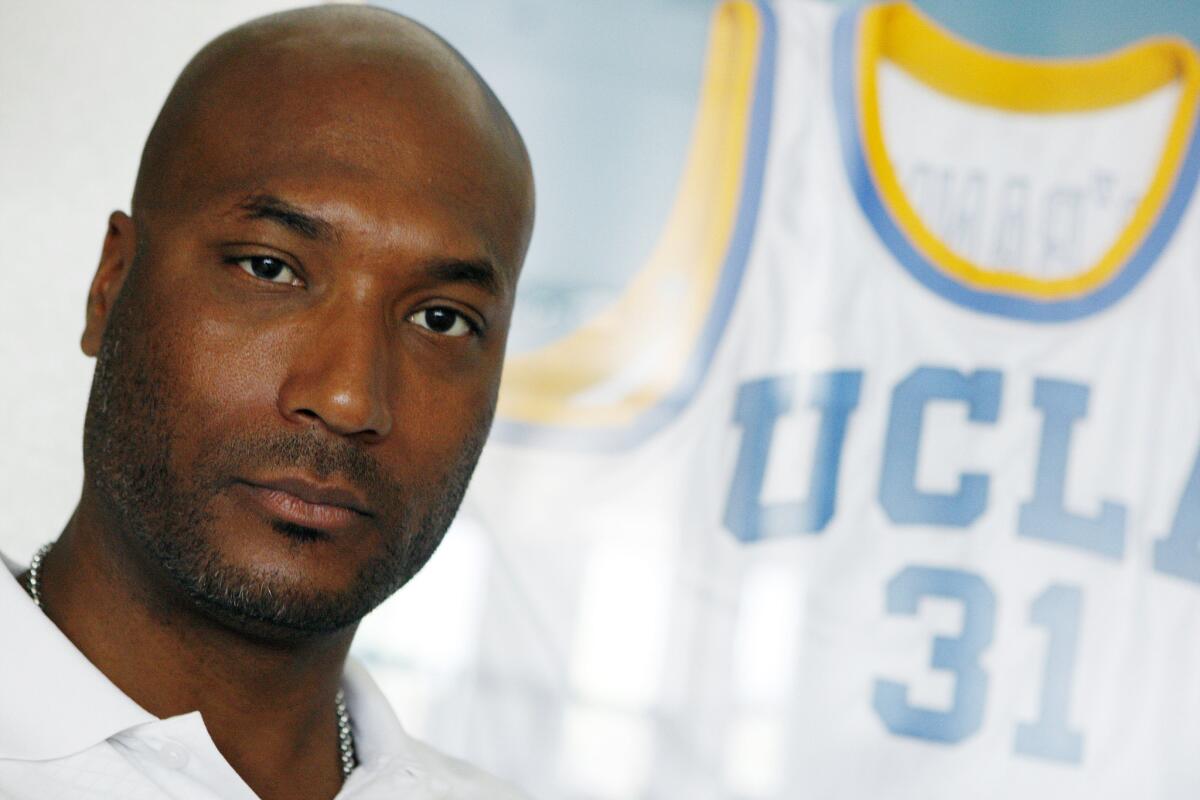Appeals court strikes down payments to college athletes

Former UCLA basketball star Ed O’Bannon in 2010
- Share via
In another twist to the long-running Ed O’Bannon case, a federal appeals court Wednesday delivered a mixed message to the powers that be in college sports.
The U.S. 9th Circuit Court of Appeals in San Francisco upheld an earlier ruling that the NCAA’s version of amateurism violates antitrust laws and said member schools cannot be prevented from offering scholarships that cover the full cost of attendance.
At the same time, the three-judge panel struck down a lower court’s plan to give athletes an additional $5,000 or more a year in deferred payments.
“The Rule of Reason requires that the NCAA permit its schools to provide up to the cost of attendance to their student athletes,” the appeals court announced. “It does not require more.”
The case, which bears the name of the former UCLA basketball star but has grown to include others, has focused on revenue generated by the NCAA through television shows and video games bearing the names, images and likenesses of college players, particularly in Division I football and basketball.
The NCAA has argued that the aura of amateurism distinguishes its product from professional leagues and serves to attract fans. The rules also promote competitive balance, preventing rich schools from buying up all the best high school talent, defendants have said.
Schools with limited athletic department budgets have fought the notion of full-cost scholarships, but Wednesday’s ruling can be seen as largely favorable to the NCAA.
“We have not completely reviewed the court’s 78-page decision, but we agree with the court that the injunction ‘allowing students to be paid cash compensation of up to $5,000 per year was erroneous,’ ” NCAA President Mark Emmert said in a statement. “Since Aug. 1, the NCAA has allowed member schools to provide up to full cost of attendance; however, we disagree that it should be mandated by the courts.”
More to Read
Go beyond the scoreboard
Get the latest on L.A.'s teams in the daily Sports Report newsletter.
You may occasionally receive promotional content from the Los Angeles Times.











